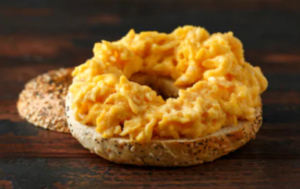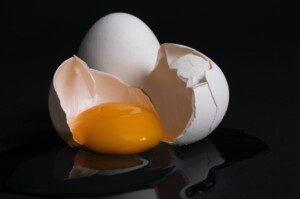
Have whole eggs suffered a bad rap for many years? Or is it really possible they can cause or partially contribute to high levels of “bad” cholesterol?
“Eggs and specifically the yolk, were given a bad rap over the past 30 some-odd years, though this line of thinking has been in rapid reverse over the past decade,” says Richard Kelley, MD, a practicing physician in Texas for 20+ years, and author of “The Fitness Response,” “The Three-Hour Appetite” and the ebook, “The Fitness Response ‘Diet’ for Women.”
Are eggs really bad?
Dr. Kelley explains, “The yolk of the egg is largely comprised of fat and cholesterol, and it was once believed that this exogenous form of dietary cholesterol certainly had to have a greater impact on serum cholesterol, than we believe it does today.”
An egg yolk contains 225 mg of cholesterol.
An egg also contains everything necessary to grow life, along with all the essential amino acids plus omega 3 “good” fats.
So can eating the yolks actually increase a person’s cholesterol level?

Jasmin Egger/Unsplash
“An excessive daily or weekly intake of whole eggs can certainly contribute to elevations of serum cholesterol, but this will vary from individual to individual,” explains Dr. Kelley.
Also, just what constitutes excessive intake? This has not been officially determined, but Dr. Kelley does say this:
“Some experts feel that up to four yolks consumed per week should have little impact on the elevation of one’s cholesterol level and will not negatively impact one’s risk of developing heart disease.”
Dr. Kelley reiterates that any effect that yolks have on someone’s blood lipids will vary from person to person.
One person may see an increase in serum cholesterol with four or five whole eggs every week, whereas another individual may experience no elevation of total or bad cholesterol, despite eating 10 whole eggs every week.
“Again, there is likely to be a very strong genetic factor involved here.”
What about egg substitutes?
Forget these. Read the ingredients and you’ll see why.
Among the ingredients is artificial coloring. Do not fear eggs.
It’s that simple. Just don’t go overboard, if for no other reason, a final and definitive verdict is not out.
You can also compromise by making an omelet with a mixture of a yolk from one egg, and then the rest of it composed of whites from several more.

 Richard Kelley, MD,
Richard Kelley, MD,









